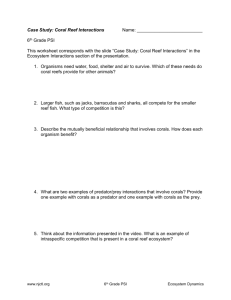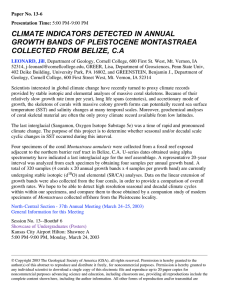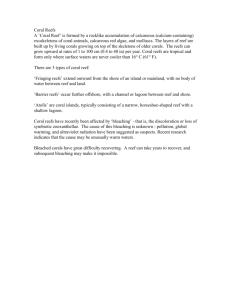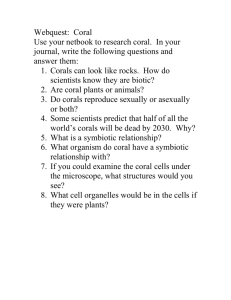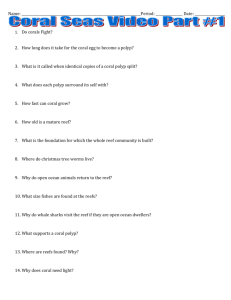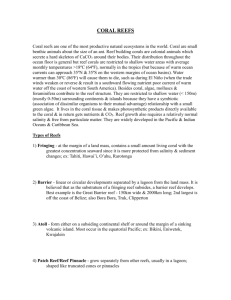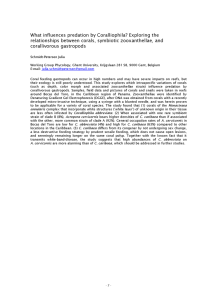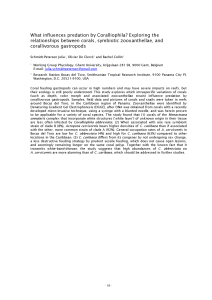Introduction to Coral Reef Ecosystems
advertisement
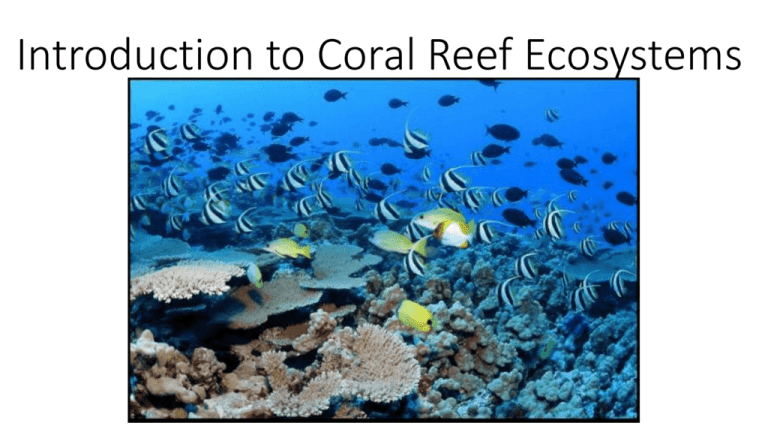
Introduction to Coral Reef Ecosystems Reef Development • Coralline algae – precipitate calcium carbonate • Sponges – secrete silica • Dominant species = Framework Builders because they provide the matrix for the growing reef Reef Development • Scleractinia (“hard-rayed”) corals – start reefs – form the base Colonial corals: large numbers of individual coral polyps that are interconnected by living tissue and calcium carbonate skeletons • Hermatypic corals – contribute most to reef growth the more zooxanthellae the higher the calcification rates (ahermatypic corals do not build reefs) Scleractinia corals come in two forms: Massive mound shaped often irregular grow slowly (1 cm/year) Branching tree-branch or elkhorn shapes grow rapidly (10 cm/year) spread rapidly across reef fragments can start new colonies Mutualism in corals Mutualism – both species benefit Zooxanthellae – photosynthetic single-celled algae Coral polyp – microscopic animal in the Cnidaria family Mutualism in corals Benefit to zooxanthellae protection nutrition from coral excretion Benefit to coral polyp get energy in form of carbohydrates Corals still need to eat to get other nutrients and minerals such as nitrogen and calcium but the zooxanthellae provide the base energy to keep them healthy and alive Limits to reef growth – abiotic factors • Temperature • Lowest temp = 64 • Optimal range = 73 – 84 • Highest tolerance observed for short time in one specie = 104 • Light • Active reef building stops below 25 m – 50 m depending on species • Turbidity • Sedimentation • Salinity • 32 – 42 ppt Limits to reef growth - Bioerosion • Vertebrates scrape corals • Parrot fish • Surgeon fish • Invertebrates bore into coral • Urchins enlarge crevices • Sponges use chemical attack Depth zonation in reefs Different corals occur at different depths because… 1. Wave and current strength 2. Light 3. Suspended sediments *Competition for resources leads to one dominant species in each habitat Depth zonation
